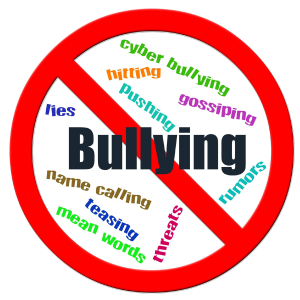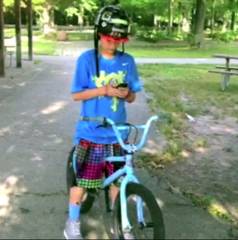The position of Juvenile Officer encompasses many different duties and responsibilities. Currently, Police Officer Matthew Stanislao and Police Officer James McGill serves as the department Juvenile Officers. The assignment is in addition to P.O. Stanislao’s regular duties as the Community Outreach Officer and P.O. McGIll’s regular duties as a Patrol Officer.
P.O. Stanislao joined the G.R.P.D. in February of 2004 after serving with the Boonton Police Department. P.O. Stanislso has been a Juvenile Officer with the G.R.P.D. since 2008 and has most recently been named the department’s Community Outreach Officer in 2018. P.O. Stanislao obtained his Master’s Degree in Clinical Social Work making him a Licensed Master Social Worker, a great asset to our community and this department.
P.O. McGill joined the G.P.R.D. in January of 2008 after serving with the N.J.I.T. Campus Police Department in Newark, NJ. In 2014 he was selected to serve as the department’s Juvenile Officer. In this role, both proactive and reactive measures are taken in addressing juvenile delinquency and crimes committed by juveniles. The Station House Adjustment Program or (SHA Program) is used for juveniles in special circumstances involving minor non-violent offenses to help avoid the establishment of a juvenile record.
In partnership with the Detective Bureau, incidents involving juveniles are reviewed on a case by case basis to determine the best course of action for the juvenile. In partnership with parents, the schools, juvenile courts and other social services the GRPD seeks to assist in providing a positive environment for the youth in our community.
To speak with a Juvenile Officer concerning juvenile matters, please feel free to contact them:
Email: mstanislao@glenrockpolice.com Voicemail: (201) 670-3941 Ext. 8128
Email: [email protected] Voicemail: (201) 670-3941 Ext. 8135
UNDERAGE DRINKING
 Teens are at far greater risk of death in an alcohol-related crash than the overall population, despite the fact they cannot legally purchase or publicly possess alcohol in any State. High-visibility enforcement of underage purchase, possession, and provision laws can create a significant deterrent for violation of youth access laws, reduce underage drinking, and decrease alcohol-related crashes. Above all else, parental responsibility is key to educating and protecting our teens.
Teens are at far greater risk of death in an alcohol-related crash than the overall population, despite the fact they cannot legally purchase or publicly possess alcohol in any State. High-visibility enforcement of underage purchase, possession, and provision laws can create a significant deterrent for violation of youth access laws, reduce underage drinking, and decrease alcohol-related crashes. Above all else, parental responsibility is key to educating and protecting our teens.
ANTI-BULLYING

Bullying is unwanted, aggressive behavior among school aged children that involves a real or perceived power imbalance. The behavior is repeated, or has the potential to be repeated, over time. Both kids who are bullied and who bully others may have serious, lasting problems.
In order to be considered bullying, the behavior must be aggressive and include:
- An Imblanace of Power: Kids who bully use their power; such as physical strength, access to embarrassing information, or popularity to control or harm others. Power imbalanaces can change over time and in different situations, even if they involve the same people.
- Repetition: Bullying behaviors happen more than once or have the potential to happen more than once.
- Bullying includes actions such as making threats, spreading rumors, attacking someone physically or verbally, and excluding someone from a group on purpose.
There are three types of bullying:
Verbal Bullying
It is saying or writing mean things.
Verbal Bullying includes:
- Teasing
- Name-calling
- Inappropriate sexual comments
- Threatening to cause harm
Social Bullying
Sometimes referred to as relational bullying, involves hurting someone’s reputation or relationships.
Social bullying includes:
- Leaving someone out on purpose
- Telling other children not to be friends with someone
- Spreading rumors about someone
- Embarrassing someone in public
Physical Bullying
It involves hurting a person’s body or possessions.
Physical bullying includes:
- Hitting/kicking/pinching
- Spitting
- Tripping/pushing
- Taking or breaking someone’s things
- Making mean or rude hand gestures
Have a problem with bullying in school?
Don’t let yourself or your child be a victim!
Seek help by contacting:
- Teacher
- School counselor
- School principal
- School superintendent
- State Department of Education
CYBER SABOTAGE
- Cyber-Bullying / Sexting
- Self-Empowerment
- Harassment
- Use of Social Media
- Power & Popularity
Juvenile PSA'S
CONSCIOUS & ALERT
-
This PSA focused on:
- Respect
- Dating Violence
- Passive/Aggressive Behavior
- Delinquency
- Peer Pressure
- Selective Intelligence
TRUE TO THYSELF
-
This PSA focused on:
- Underage Drinking
- Prescription Abuse/Theft
- Social Self-Awareness
- Local Ordinances
- GDL Laws


